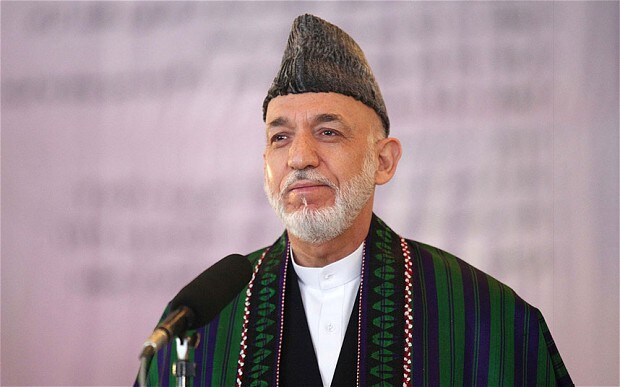RASC News Agency: Former President of Afghanistan, Hamid Karzai, has voiced his profound concern over the forced deportation of Afghanistani migrants from Pakistan and the alarming reports of their properties and assets being confiscated. Karzai called on the Pakistani government to uphold international norms and treat Afghanistani refugees with dignity and in accordance with the principles of good neighborliness. The latest wave of deportations targeting undocumented Afghanistani nationals has triggered a fresh humanitarian crisis. Numerous credible reports indicate that many deportees are being stripped of their homes, belongings, and personal assets without due process. In many cases, individuals have been forced to leave without the opportunity to collect or transport their essential possessions raising serious human rights concerns and international condemnation.
In a public statement released Tuesday, April 15, on his official X (formerly Twitter) account, Karzai urged international organizations, as well as Afghanistani businessmen and investors, to step forward and provide essential support for returning migrants. He highlighted the urgent need for a coordinated and humane response to ensure the safe reintegration of deportees. Karzai also underscored the importance of addressing the root causes of mass displacement within Afghanistan itself. Chief among these, he argued, is the systematic exclusion of girls from schools and universities an issue that continues to spark outrage both domestically and internationally.
“All factors driving forced migration particularly the unjustified ban on girls’ education must be eliminated,” Karzai stated. “Only then can Afghanistani citizens feel secure enough to remain in their homeland, and those who have been forced to leave may return with dignity, hope, and a sense of belonging.” The implementation of the second phase of deportations has already resulted in the expulsion of tens of thousands of Afghanistani nationals, many of whom have been returned through the Torkham border crossing. This ongoing campaign has drawn fierce criticism from global human rights organizations and increased scrutiny from the international community.
In a related development, the Taliban’s Acting Minister of Public Health recently acknowledged that Afghanistani refugees in neighboring countries especially in Iran and Pakistan are facing widespread harassment, systemic discrimination, and unlawful confiscation of their assets. However, rights groups argue that the Taliban regime bears responsibility for creating the very conditions that have forced so many to flee. Despite public statements of concern, the Taliban’s policies characterized by authoritarian governance, economic mismanagement, and deep social repression continue to undermine any meaningful prospect of voluntary repatriation. Until there is a fundamental shift in governance and human rights protections within Afghanistan, experts warn, the cycle of forced displacement and migrant vulnerability will persist.






